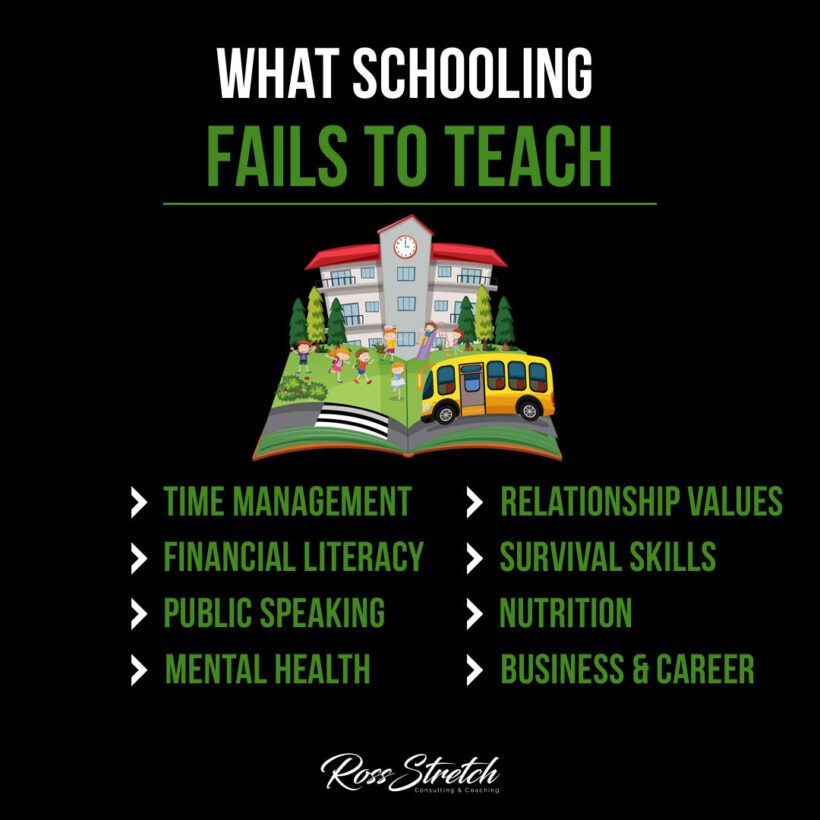Traditional education has been the cornerstone of societal development, equipping students with foundational knowledge in various academic disciplines. However, it often overlooks critical life skills that are essential for navigating the complexities of adulthood. Let’s explore the gaps in traditional schooling and the importance of these skills.
Time Management: The Unofficial Curriculum
One of the most crucial skills for success in both personal and professional life is time management. Effective time management allows individuals to prioritize tasks, reduce stress, and achieve goals efficiently.
The Art of Prioritization
Schools seldom teach students how to manage their time beyond the classroom. Yet, mastering this skill can lead to improved productivity and a better work-life balance. Resources like time management workshops and productivity apps can bridge this educational gap.
Financial Literacy: Beyond the Basics
Financial literacy is rarely covered in depth in traditional curricula, leaving many without the knowledge to make informed financial decisions. Understanding budgeting, saving, investing, and credit is vital for financial independence.
Crafting Financially Savvy Individuals
To compensate for this lack, financial education should be sought through personal research, financial advisors, and practical experiences like internships or apprenticeships that offer a real-world understanding of financial management.
Public Speaking: The Voice of Confidence
Public speaking is a powerful skill that enhances one’s ability to communicate effectively, persuade, and lead. Despite its importance, many students graduate without having honed this skill.
Eloquence as a Learned Skill
Organizations such as Toastmasters or classes on platforms like Coursera can provide training in public speaking, helping individuals gain the confidence and skills necessary to excel in diverse settings.
Mental Health: A Silent Subject
Mental health is often a silent subject in education, yet it’s crucial for overall well-being. Understanding how to manage stress, anxiety, and depression should be integral to education.
Prioritizing Psychological Well-being
Students can seek information on mental health through online resources, counseling services, and health education programs. Educators and parents should also promote open conversations about mental health to destigmatize these critical issues.
Relationship Values: Interpersonal Dynamics
Schools teach about historical and literary relationships but often fail to impart the values necessary for healthy, real-life relationships, such as communication, empathy, and respect.
Fostering Healthy Interactions
Workshops on emotional intelligence and relationship counseling can offer insights into developing and maintaining positive personal and professional relationships.
Survival Skills: Prepared for the Unexpected
Practical survival skills, such as first aid, emergency preparedness, and self-defense, are typically absent from school syllabi. These skills are essential for safety and resilience.
Equipping for Emergencies
Certification courses from organizations like the Red Cross can provide training in first aid and emergency response, preparing individuals for unexpected situations.
Nutrition: The Foundation of Health
Nutritional education is often limited to basic food groups, leaving many without a comprehensive understanding of healthy eating habits and their impact on overall health.
Nourishing Body and Mind
Cooking classes, nutritional seminars, and health-focused events can provide practical knowledge about maintaining a balanced diet and the principles of good nutrition.
Business & Career: Mapping the Future
While schools may provide career counseling, they rarely offer in-depth insights into navigating the business world or developing entrepreneurial skills.
Strategies for Career Development
Mentorship programs, business workshops, and career development courses can supplement traditional education, providing students with a roadmap for their professional journeys.
The gaps in traditional education highlight the need for a more holistic approach to learning that includes life skills essential for success. Incorporating these subjects into the educational framework could vastly improve students’ preparedness for the real world. For further exploration, organizations like Khan Academy and LinkedIn Learning offer valuable resources to develop these critical skills.


